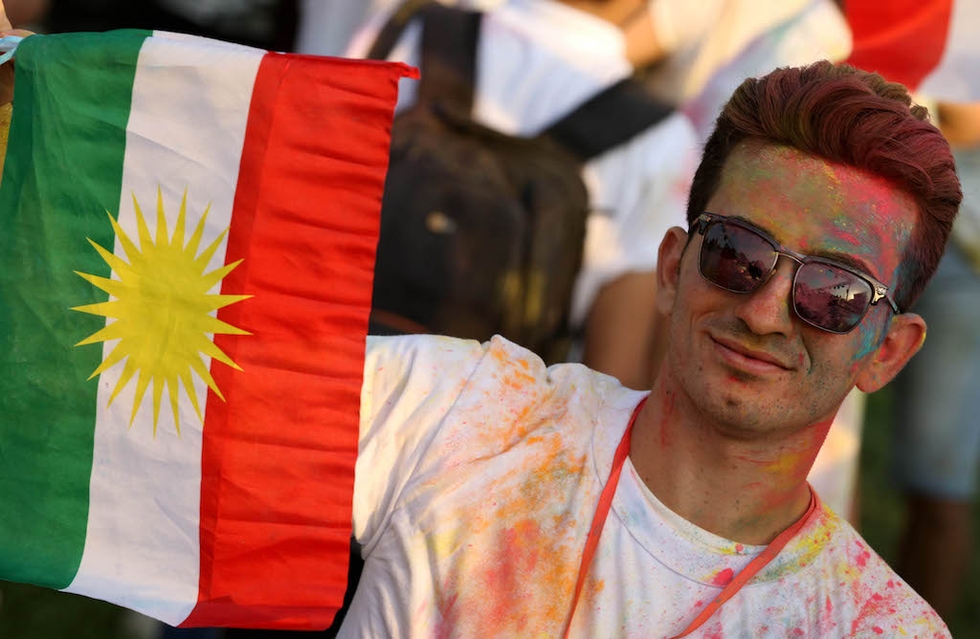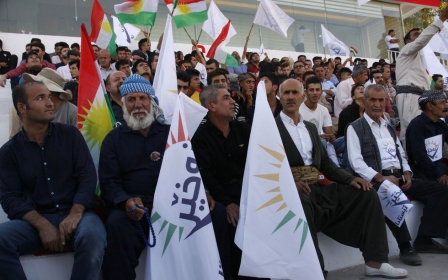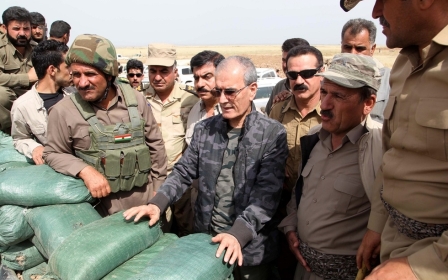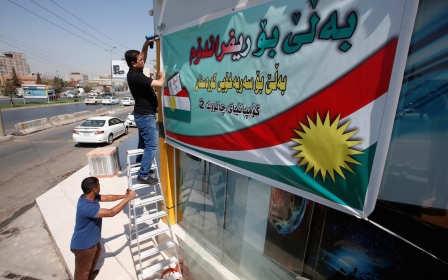US announces opposition to Iraqi Kurdish independence referendum

The US officially declared its opposition to the Iraqi Kurdish independence referendum on Saturday, as the Kurdistan parliament unanimously voted in favour of holding it on 25 September.
"The United States does not support the Kurdistan Regional Government’s intention to hold a referendum later this month," the White House said in a statement on Friday. "The United States has repeatedly emphasized to the leaders of the Kurdistan Regional Government that the referendum is distracting from efforts to defeat ISIS [the Islamic State group] and stabilize the liberated areas."
"We therefore call on the Kurdistan Regional Government to call off the referendum and enter into serious and sustained dialogue with Baghdad, which the United States has repeatedly indicated it is prepared to facilitate."
The announcement provoked outrage from Kurds on social media who accused the US of being ungrateful after the Kurdish Peshmerga's effort in fighting the Islamic State group:
On Friday, the parliament of Iraq’s autonomous Kurdistan region approved a plan to hold a referendum on independence on 25 September, ignoring Iraqi, Iranian and Turkish opposition as well as US and Western concerns that the vote may cause new conflicts in the region.
An overwhelming majority of Kurdish MPs raised their hands to approve the plan, during the first session held by the parliament since it was suspended two years ago.
The parliament reconvened on Friday in Erbil, the seat of the Kurdistan Regional Government (KRG) in northern Iraq.
The central government in Baghdad opposes the plan, as do Iraq's neighbours Iran and Turkey, which fear that an independent Kurdish state could fuel separatism among their own Kurdish populations.
Ankara has warned of the "cost" to the Iraqi Kurds, whose economy is heavily dependent on oil exports via a pipeline running through Turkey to the Mediterranean.
Washington has previously suggested it opposes the referendum on the grounds that it would weaken Arab-Kurdish joint military operations that have helped to send IS into retreat in both Iraq and war-torn Syria.
The United States has proposed unspecified "alternatives," to which Iraqi Kurdish leader Massud Barzani, who set the referendum date in June, has pledged to give a rapid response.
"If they have a stronger alternative to the referendum, the Kurdish leadership will look at it, but if they want to postpone the vote with no alternatives, we won't," Barzani said on Thursday.
Analysts say the referendum plan, which has stirred Arab-Kurdish ethnic tensions, could mark the end of an era of cooperation during which Baghdad and Erbil battled IS after its seizure of swaths of northern and western Iraq in the summer of 2014.
The United Nations on Saturday also called on Iraqi Kurdish leader Massud Barzani to drop plans for an independence referendum and enter talks with Baghdad aimed at reaching a deal within three years.
Jan Kubis, the top UN envoy in Iraq, offered international backing for immediate negotiations between the country's federal government and the autonomous Kurdish region.
In a document seen by AFP, he proposed "structured, sustained, intensive and result-oriented partnership negotiations... on how to resolve all the problems and outstanding issues" between Baghdad and Erbil.
The Kurdish Regional Government is embroiled in long-standing disputes with the federal government over oil exports, budget payments and control of ethnically divided areas.
Stay informed with MEE's newsletters
Sign up to get the latest alerts, insights and analysis, starting with Turkey Unpacked
Middle East Eye delivers independent and unrivalled coverage and analysis of the Middle East, North Africa and beyond. To learn more about republishing this content and the associated fees, please fill out this form. More about MEE can be found here.




